 10 citations,
June 2017 in “Experimental Dermatology”
10 citations,
June 2017 in “Experimental Dermatology” New hair loss treatments have evolved from understanding hair biology and patient needs.
 8 citations,
June 2016 in “Journal of Cutaneous Pathology”
8 citations,
June 2016 in “Journal of Cutaneous Pathology” Two women were diagnosed with a rare melanoma that looked like hair loss but was actually a type of skin cancer.
 7 citations,
April 2015 in “Plastic and Aesthetic Nursing”
7 citations,
April 2015 in “Plastic and Aesthetic Nursing” Hair transplantation can effectively restore a natural-looking hairline when properly planned and executed.
 7 citations,
January 1994 in “Annual Reports in Medicinal Chemistry”
7 citations,
January 1994 in “Annual Reports in Medicinal Chemistry” Understanding how androgens work is key for creating new treatments for prostate issues and hair/skin conditions.
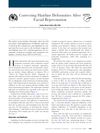 6 citations,
July 2007 in “Aesthetic Surgery Journal”
6 citations,
July 2007 in “Aesthetic Surgery Journal” The document concludes that using autologous follicular unit implantation is a successful method to correct hairline deformities after facial rejuvenation.
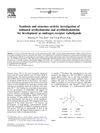 6 citations,
November 2004 in “Bioorganic & Medicinal Chemistry Letters”
6 citations,
November 2004 in “Bioorganic & Medicinal Chemistry Letters” Scientists created iodinated arylhydantoins and arylthiohydantoins that could potentially be used for imaging prostate cancer. Some versions with specific side-chains showed high potential for this use.
 6 citations,
January 2001 in “Dermatologic Surgery”
6 citations,
January 2001 in “Dermatologic Surgery” Female pattern alopecia is common, starts in late 20s, and is not androgen dependent.
 4 citations,
November 2015 in “Journal of Investigative Dermatology”
4 citations,
November 2015 in “Journal of Investigative Dermatology” Testosterone may worsen hair loss by affecting hair growth signals, while different prostaglandins can either hinder or promote hair growth.
 4 citations,
February 2015 in “Journal of Clinical Laboratory Analysis”
4 citations,
February 2015 in “Journal of Clinical Laboratory Analysis” A genetic variant in the androgen receptor gene increases heart disease risk in women but not in men.
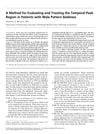 4 citations,
May 2002 in “Dermatologic Surgery”
4 citations,
May 2002 in “Dermatologic Surgery” The method improves natural appearance in hair restoration by properly evaluating and treating the temporal peak region.
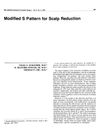 4 citations,
December 1992 in “The American Journal of Cosmetic Surgery”
4 citations,
December 1992 in “The American Journal of Cosmetic Surgery” The modified S pattern for scalp reduction is effective for removing more bald scalp and hiding scars in hair restoration.
 3 citations,
May 2014 in “InTech eBooks”
3 citations,
May 2014 in “InTech eBooks” Copper deficiency may cause hair loss, and treating it could involve nutrition and hormones.
 3 citations,
January 2008 in “Endocrine journal”
3 citations,
January 2008 in “Endocrine journal” A new mutation linked to partial Androgen Insensitivity Syndrome and prostate cancer was found in a patient unhappy with their female gender assignment.
 2 citations,
August 2019 in “BMC Complementary and Alternative Medicine”
2 citations,
August 2019 in “BMC Complementary and Alternative Medicine” Asiasari radix extract may be a potential treatment for melanoma because it selectively triggers cell death in melanoma cells by affecting p53 regulation.
 1 citations,
December 2022 in “Middle East Journal of Science”
1 citations,
December 2022 in “Middle East Journal of Science” Permanent hair dyes use chemicals that react with hydrogen peroxide to create color.
 1 citations,
October 2017 in “Elsevier eBooks”
1 citations,
October 2017 in “Elsevier eBooks” Antiandrogens can treat female hormonal conditions, but environmental ones may harm reproductive health.
 1 citations,
January 1980 in “Archives of Dermatology”
1 citations,
January 1980 in “Archives of Dermatology” Syphilis chancres can be atypical, and fiber implantation for baldness is risky and often fails.
 April 2024 in “Nepal journal of dermatology, venereology & leprology”
April 2024 in “Nepal journal of dermatology, venereology & leprology” Premature graying of hair is common and stressful, but not well understood or treated.
 December 2021 in “Biomedical journal of scientific & technical research”
December 2021 in “Biomedical journal of scientific & technical research” Oral processed egg yolk improves hair regrowth and quality in alopecia patients.
 December 2018 in “Actas urológicas españolas”
December 2018 in “Actas urológicas españolas” 5-alpha reductase inhibitors may have additional effects on cancer, mental health, heart health, and hormone levels beyond treating prostate enlargement.
 January 2018 in “Journal of cosmetology & trichology”
January 2018 in “Journal of cosmetology & trichology” The Automatic Biofibre® Hair Implant is a fast and effective hair restoration method that provides immediate cosmetic benefits and good results in over 90% of cases, but requires proper care to avoid complications.
 March 2017 in “bioRxiv (Cold Spring Harbor Laboratory)”
March 2017 in “bioRxiv (Cold Spring Harbor Laboratory)” Plant root hair growth is controlled by the hormone auxin, which affects the production of certain oxygen-related molecules through a specific process.
 February 2017 in “Cancer Causes & Control”
February 2017 in “Cancer Causes & Control” Swedish men with the E213 A-allele of the androgen receptor have a lower risk of prostate cancer.
 October 2015 in “Medical Clinics of North America”
October 2015 in “Medical Clinics of North America” The document summarizes important skin care topics for non-specialist doctors, including treatments for skin conditions and the management of skin diseases.
 January 2008 in “Annals of Nutrition and Metabolism”
January 2008 in “Annals of Nutrition and Metabolism” Parthenolide promotes hair growth in mice and may influence pathways related to male pattern baldness.
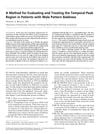 May 2002 in “Dermatologic Surgery”
May 2002 in “Dermatologic Surgery” The method improves natural appearance in hair restoration by properly evaluating and treating the temporal peak region.

The document concludes that various skin conditions have specific treatments and that adequate calcium intake may prevent osteoporosis.
 April 2019 in “Advances in integrative medicine”
April 2019 in “Advances in integrative medicine” HST and HST/F promote hair growth and may help treat alopecia.
 October 1990 in “Archives of Dermatology”
October 1990 in “Archives of Dermatology” Hair loss and growth can be accurately measured using computer-assisted counting.
 658 citations,
June 2003 in “Endocrine reviews”
658 citations,
June 2003 in “Endocrine reviews” Male hormones may play a role in the development of heart disease, and more research is needed to understand their effects.






























